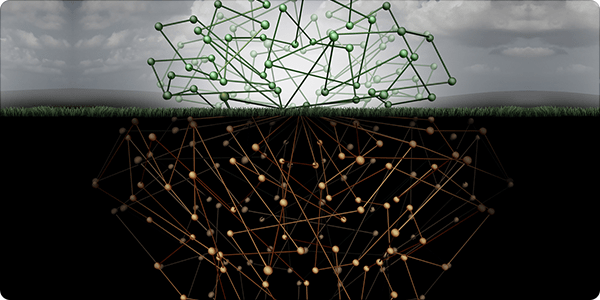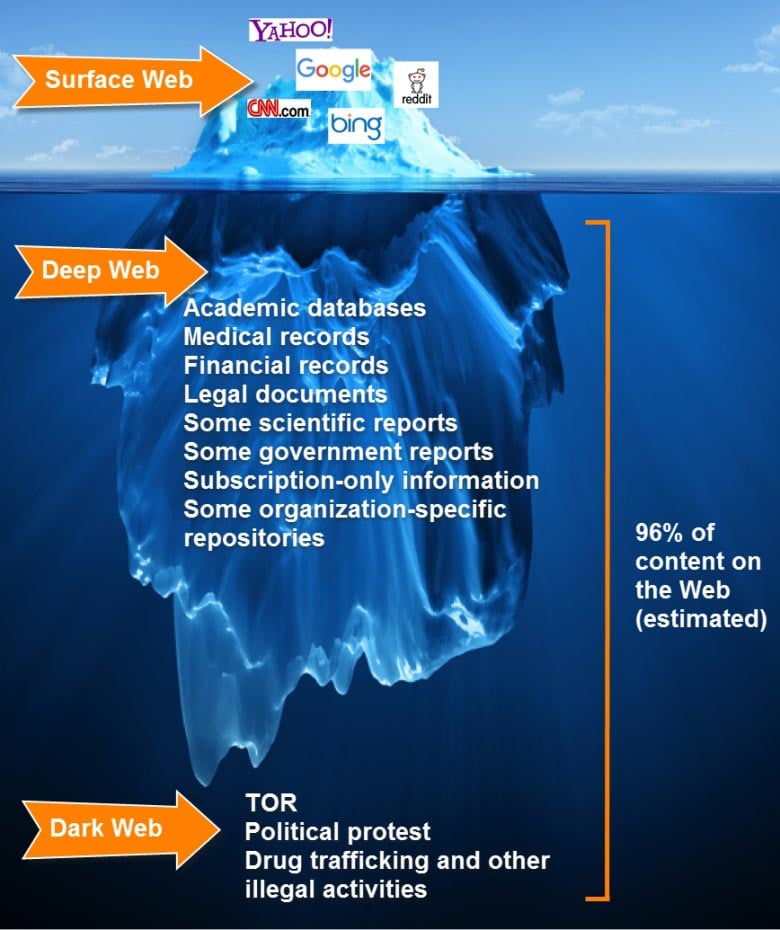Inside the Dark Web: What Every Parent Needs to Know
Posted on
by
Jay Vrijenhoek

The Dark Web… just the mention of it makes people shake their heads and shudder. Best avoid it, a lot of shady things happening there! Is the Dark Web really as bad as its reputation? You might be steering clear of it, but are your children doing the same? How easy is it to access the Dark Web? These are some of the issues this article will address.
Dark Web vs. Deep Web: What’s the Difference?
Content that is indexed by search engines is what we know as the Surface Web (or just ‘Web’), content that is not indexed by search engines is known as the Deep Web, and finally content that is neither indexed by search engines and needs a special browser to access is known as the Dark Web.
Your Internet browsing is likely predominantly done on the Web with the occasional venture off into the Deep Web. Ending up on the Deep Web is fairly easy and probably happens all the time without you knowing. All it takes is clicking a link on a site that is not fully indexed by search engines ending up on a site that also isn’t indexed. If Intego chose to block search engine indexing, we’d technically be considered part of the Deep Web!
This graphic illustrates these divisions of the Internet:

For example, visiting your bank’s website has you on the Surface Web, logging in and browsing your transaction records is done on the Deep Web. Again, the Deep Web is something you likely access on a daily basis and is protected by layers of security implemented by the sites that require your personal information in order to keep it safe.
The Dark Web, however, can only be accessed by using the Tor browser. There is no way to accidentally stumble into it during typical browsing, such as social media accounts, shopping, or simply watching YouTube videos.
Is the Dark Web as Bad as They Say?
According to most, the Dark Web is not a safe place. The image above is a generalization of the Dark Web, where anything and everything horrible and illegal takes place. A significant amount of nefarious activity takes place there, but this holds true for the Surface and Deep Webs as well. Joseph Cox wrote about this a few years ago in his article, “The Dark Web as You Know It Is a Myth,” and I agree with it word for word.
The problem with the Dark Web is not necessarily some of the content or activities that take place there. Again, those can be found on the surface and Deep Web as well. It’s how easy the content and activities are to access. You may be browsing a site on the Dark Web which seems completely harmless, click on a link and end up on a child trafficking forum. No warnings, no disclaimer, blammo you’re looking at it.
When navigated carefully, the Deep Web can provide troves of good and useful information that is not shady or illegal. However, children are curious and may encounter content we want to shield them from. Can we trust and expect our children to not be curious and go off exploring though?
Accessing the Dark Web
Accessing the Dark Web is remarkably easy. Even for someone who has never done so or knows anything about it, the answers are just an online search away. A search for “How can I access the Dark Web?” and “How do I find websites on the Dark Web?” gives you everything you need to install the required browser and start exploring within minutes. If your child has their own bank account or PayPal account, a search for “How can I buy Bitcoin” can provide instructions on how to get their hands on the preferred Dark Web currency.
The Problem with Tor and Other Private Browsers
Tor, required among other things to browse the Dark Web, encrypts all traffic. This renders monitoring software, parental controls and firewalls that block certain content less effective as that software can’t “see” what’s going on behind the encryption. Opera now has a free Virtual Private Network (VPN) feature built in to its browser and while very convenient to browse the web more securely, it has the same effect on the above mentioned software.
There are legitimate and very good reasons for using browsers such as Tor or Opera, but without the ability to keep our children safe while using them, a lot of bad things can happen.
Keeping Children Safe Online
We obviously don’t want our children anywhere near the Dark Web, at least until they have been properly educated on the use of Tor, VPN, do’s and dont’s etc. This applies to the use of the web in general and any kind of bad content of course. So, what can you do?
- For privacy and security, use a VPN.
While a VPN inside a browser thwarts monitoring and parental control software, using a VPN on the Mac so that any and all traffic is encrypted does not have that effect. Using a commercial solution or through setting up your own, the browser can work as usual and the VPN software will take care of encrypting any traffic that leaves your Mac. This also means that monitoring or parental control software is able to do it’s job as well as browser data is not encrypted in the browser itself. - Block Tor Browser and other in-browser VPN solutions like those found in Opera.
This can easily be done using solutions such as ContentBarrier. Block a specific application like Tor or block all potential applications that might use their own form of encryption. - Educate your children (and yourself)!
Navigating the web can be risky. Cyberbullying can happen on any forum or social media platform, pornographic content can pop up in the form of an ad even on a seemingly innocent website and scams lurk around every corner. Software solutions are a big help in keeping your children safe online but what if they use a computer that’s not managed by you — in school, at a friend’s house etc. They need to have the knowledge to keep themselves safe regardless of where they go online. Stay current so you know how to educate and protect your children. The Mac Security Blog is here to help! 🙂
Here are a few good resources:
- 8 Things to Teach Your Kids Never to Give Out Online
- What’s the Difference Between macOS Parental Controls and Intego ContentBarrier?
- The Reality of Internet Safety: Why Education Trumps Technology
- How Coding Can Make Your Kids Safer Online
- How to Monitor and Protect Your Identity Online
- Guide to Setting Up a Cyber Contract with Your Children
There is a lot of focus on the Dark Web, but content on the Surface Web or Weep Web can be just as disturbing/illegal/offensive. The Dark Web is just explicitly known for it. While it is a good idea to keep your children away from the Dark Web completely, the proper software solutions and education will make sure they stay safe on the Surface Web and Deep Web as well.
Have something to say about this story? Share your comments below!